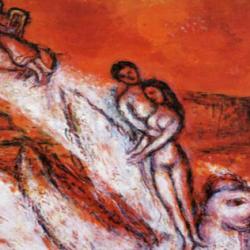Iain Provan doubts that Solomon wrote Ecclesiastes
. One of the “striking” bits of evidence is “that many of the later passages in Ecclesiastes appear to be written from a non-Solomonic point of view (i.e., from the perspective of the subject rather than the ruler, e.g., 5:8-9; 8:1-9).” It’s a good observation about those texts, but as an argument concerning authorship absolutely vaporous.
Could Solomon not have spent a bit of time wondering what the simple folk do? (Lerner and Loewe’s Arthur did!) Could Solomon not have attempted to step imaginatively down from his throne to see things from the viewpoint of his subjects? Oh no, not the wisest man in the world.
The arbitrariness of the argument becomes evident a page later, when Provan suggests that the real author “is evidently capable of taking on personae other than his own in reflecting on the nature of the universe and the moral life. He explores reality ‘as if’ he were Solomon . . . imaginatively reenacting Solomon’s reign . . . in order to facilitate those aspects of the exploration of ‘life under the sun’ that require the experience of great wealth and wisdom. He ‘becomes’ a king within the world of the text . . . in order to persuade his readers of truths about the world as it is confronted by the wealthy, the powerful, and the wise – among whose ranks certainly number kings like Solomon.” But if an anonymous exilic or postexilic author could take on various personae, why not Solomon?
Provan’s criticism of other commentators can perhaps be turned on him: “The imagination of the commentator has not come near to reckoning with the imagination of the speaker.”















